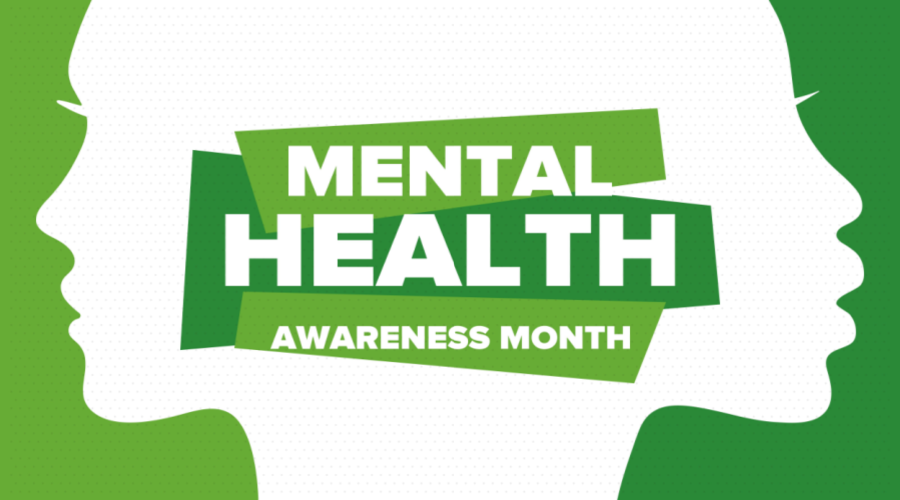Inside: How to assist patients and staff members who may be struggling with their mental health.
As Americans worry about their physical health in the midst of the coronavirus pandemic, mental health is also taking a beating. The uncertainty of the economy, the threat of getting sick, and the sustained isolation have caused an uptick in mental health problems like anxiety and depression.
Because of increased demand and a fragile supply chain, the popular depression treatment Zoloft is currently in shortage, leaving many existing depression and OCD patients newly vulnerable.
Keep these tips in mind when dealing with patients and staff members who are experiencing a downswing in their mental health.
Helping Patients: Promoting Mental Health in Your Pharmacy
Even patients who are maintaining social distance in other parts of their lives are still coming into the pharmacy.
As a prominent face of public health, pharmacists are well-positioned to identify patients who are struggling with mental health and provide them with valuable resources to get assistance.
Here’s how you can help patients who are having a hard time.
Medication review and adherence
You already have some of the tools to help patients with their mental health at your fingertips. One way is by conducting a medication review.
A review of controlled trials for medication reviews found that pharmacists were able to use medication management to reduce exposure to sedative and anticholinergic medications, which can have a negative impact on patients’ mental health.
Pharmacists can also get involved in a more comprehensive effort to manage mental health by collaborating with a patient’s primary care doctors and nurses. Together, you can discuss the patient’s medication regimen and make decisions on the best course of treatment.
Ensuring that patients adhere to their medication is also critical in helping them maintain good mental health. You can aid patients who are currently undergoing mental health treatment by:
- Offering adherence packaging
- Conducting an education session
- Sending refill reminders
- Notifying clinicians when patients don’t fill their prescriptions
Mental health first aid
Learn to recognize your patients who might be struggling with their mental health by receiving training in Mental Health First Aid. When someone is physically injured, you’d use first aid skills to help mend them. When a patient is having a mental health crisis, you can provide Mental Health First Aid to keep them afloat.
Mental health first aid relies on these actions:
- Assess risk for suicide or harm
- Listen nonjudgmentally
- Give reassurance and information
- Encourage professional help
- Encourage self-help and other support
Because of the stigma associated with mental illness, many adults don’t seek help even when they are struggling. By administering Mental Health First Aid, pharmacists can intervene for those who may not have gotten assistance otherwise.
A 2019 study found that because pharmacists are one of the most accessible healthcare professionals, they are well-positioned to administer Mental Health First Aid and that training provided effective education.
Depression screenings
You probably already offer health screenings for things like blood pressure or blood glucose in your pharmacy. Adding screenings for mental health issues like depression can be a simple task.
By using a short questionnaire like the PHQ-2, you can identify mental health red flags. If a patient’s results indicate they could be suffering from clinical depression, the more extensive PHQ-9 can help you determine the extent of their illness.
If you offer mental health screenings, you should also be prepared to connect patients to the proper resources to get treatment. It helps if you have a relationship with local mental health providers.
Let all of your patients know you are offering screenings. There are certain patients you might want to go out of your way to recommend screenings to. Pregnant and postpartum women, as well as patients who have recently been diagnosed with diabetes or another chronic condition, are particularly susceptible to depression and might benefit from additional intervention.
Helping Your Employees: Promoting Mental Health in the Workplace
As important frontline workers, your pharmacy employees may be experiencing even more anxiety, depression, and fear than those Americans who can do their jobs safely from home.
From a business standpoint, you want your employees to stay mentally well so they can continue doing their jobs. And as a caring boss, you want your employees to feel safe and happy when they come in for their shifts.
Here’s how you can promote mental health in the workplace.
Assess your coverage
Review the health insurance benefits you offer employees to make sure they have adequate coverage when it comes to mental health. While most plans offer some sort of mental health coverage, that doesn’t mean mental health services are easy to obtain.
If the plan you offer has a high deductible or high copays, that could discourage employees from getting mental health care that they need. Be sure to review your insurance’s list of covered conditions and procedures to ensure that mental health care coverage is comprehensive.
Your employees might also benefit from an Employee Assistance Program, or EAP. These programs are separate from health insurance but can help your staff members resolve personal problems that could be affecting their work performance, like mental health struggles.
Make accommodations
If an employee discloses a mental health condition, as an employer, you’re bound by the ADA to make reasonable accommodations. But even employees without a diagnosed condition will benefit from flexibility when it comes to taking care of mental health.
Especially during a time of crisis like the coronavirus pandemic, employees may need longer breaks or more flexible scheduling in order to do their job well. Something as simple as showing a willingness to listen to struggles and concerns can go a long way during these turbulent times.
You wouldn’t bat an eye if an employee took a sick day to recover from the flu. Treat mental health the same as you would a physical illness, and don’t discourage employees from taking a sick day if they need time for the sake of their mental health.
Create a positive workspace
In stressful times, you don’t want the pharmacy to be another source of anxiety for your staff members. To combat mental health problems, make sure your pharmacy is a positive environment so your employees can look forward to coming in every day.
This could mean offering constructive feedback instead of criticism and working together with employees to reduce negativity. Make performance objectives clear so staff members know exactly how to meet expectations and aren’t left wondering if they’re doing well.
Keep lines of communication open and listen for ways that you can improve the workplace. If an employee expresses frustration or dissatisfaction with the work environment, don’t get defensive. Instead, acknowledge that you hear their concerns and determine how you can make things better.
An Independently Owned Company Serving Independent Pharmacies
PBA Health is dedicated to helping independent pharmacies reach their full potential on the buy side of their business. The company is a member-owned organization that serves independent pharmacies with group purchasing services, expert contract negotiations, proprietary purchasing tools, distribution services, and more.
PBA Health, an HDA member, operates its own NABP-accredited (formerly VAWD) warehouse with more than 6,000 SKUs, including brands, generics, narcotics CII-CV, cold-storage products, and over-the-counter (OTC) products.
Want more pharmacy business tips and advice? Sign up for our e-newsletter.












